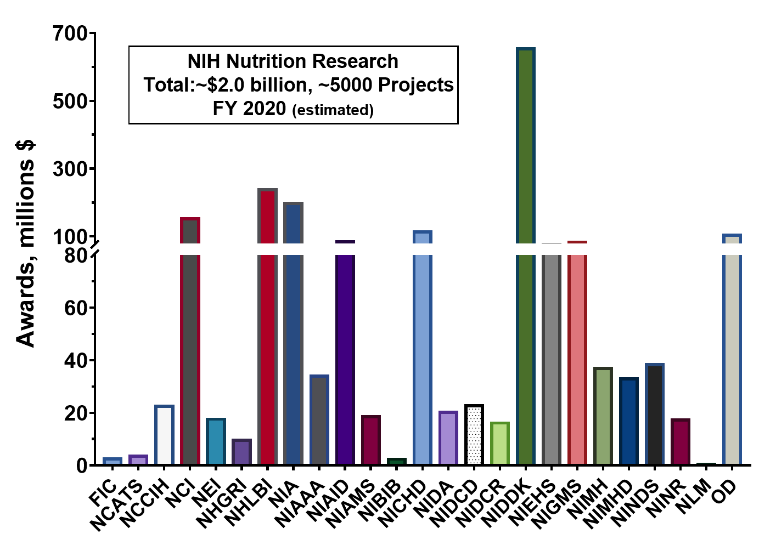Future Research Strengths
Diabetes & Obesity Research Priority Area Future Research Strengths
To identify future areas of research and to enable programmatic growth of UK’s research enterprise, we reviewed NIH strategic plans1, NIH highlighted research advances in diabetes and obesity2, and NIH vision statements on health disparities and minority health3. Some of the areas identified represent those in which we already have a small, but significant presence, while others are programs that would have to be established at UK. We believe that investment in these areas will allow UK to make major advances in the obesity/diabetes health disparity. Finally, it’s important to mention that the NIH stresses the necessity of supporting education and training programs focused on this health disparity to ensure a critical mass of researchers, practitioners and educators. Efforts along these lines enable the translation of “basic science observations into interventions that improve public health” 1
Identified Areas For Future Research Focus
Advancing studies of pancreatic biology
In its recent publication entitled Research Advances & Emerging Opportunities (2019)2, the NIDDK identified pancreatic cell biology as an emerging research opportunity. Some areas of opportunity include single cell RNA-seq technology for transcriptomic analyses and studies on pancreatic blood flow, β-cell plasticity and reprogramming. Several of our existing thematic research efforts would benefit by extension into pancreatic biology and a program focused on pancreatic biology would allow testing of cause-and-effect relationships between comorbidities and pancreatic dysfunction.
The Role of the Microbiome in Obesity/Diabetes
Research into how diet and nutrition affect the microbiome is an NIDDK priority. A key question is whether the microbiome can explain individual variability and risk for obesity/diabetes. Many factors can modify the microbiome and identification of those which can facilitate a healthier metabolic phenotype may represent a viable therapeutic approach. Opportunities for partnering with existing community-based programs (e.g. the UK APPAL-TREE study) to incorporate microbiome research are possibilities. It is also noteworthy that some UK investigators from the COM and CAFÉ are already conducting basic research in this area.
Advancing Bioinformatics and Implementation Science for Obesity/Diabetes and Nutrition Research
Answers to some of the questions posed above (e.g., what factors influence the microbiome to alter the metabolic phenotype) will require sophisticated bioinformatic approaches to evaluate how a wide range of factors such as diet/nutrition, exercise, sleep and socioeconomic factors can impact individual variability and risk for obesity/diabetes. Collaboration between UK biostatisticians and UK community-based programs would enable work on this identified NIH priority. Further, engaging UK’s Workgroup for Implementation Science (UK WINS) through the Center for Health Services Research, could aid in identifying evidence-based nutrition strategies to improve health across the Commonwealth.
Ingestive Behaviors, Gut-Brain Signaling and the Role of the Autonomic Nervous System
The NIDDK recently convened a workshop (September 2018) on how signaling between the brain and peripheral organs may impact glucose/fat metabolism and the risk for metabolic diseases (e.g., obesity/diabetes, fatty liver). Because much is still unknown in this area, the NIH has identified it as a research priority with potential for significant impact and, thus, has dedicated funds from the NIH Common Fund (NCF). Several groups at UK are already working in the area, however, targeted recruiting could synergize existing efforts to help fulfill criteria for NCF programs- which must be transformative, high impact and cross-cutting (bridging several diseases/conditions). We envision that advances in this area will lead to interventions/behavioral modifications that could be tailored to the individual to help offset the burden of obesity/diabetes.
Accelerating Basic and Clinical Nutrition Research to Improve Outcomes Across the Lifespan
Recognizing that obesity and diabetes are diseases affected by nutrition, a major goal of the NIH’s Strategic Plan over the next decade, is to facilitate research in nutrition. Strategic growth in this area would allow us to take advantage of NIH commitments in order to address this major health disparity in Kentucky. The figure shows recent data on NIH-funded nutrition research by institute4.
NIH Nutrition Research
